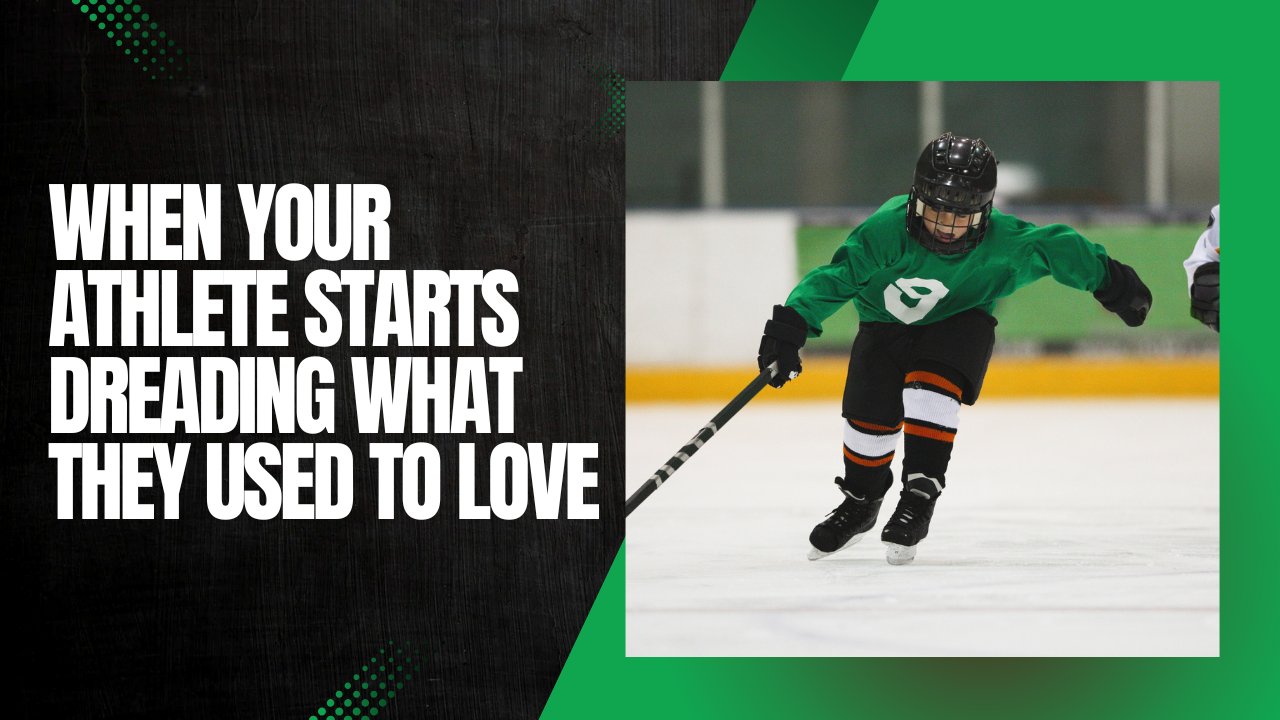
When Your Athlete Starts Dreading What They Used to Love
Oct 05, 2025It’s one of the most confusing parts of parenting an athlete:
They used to love it.
The early mornings. The grind. The game days. The locker room energy. Even school was something they embraced, because it brought structure, friends, and a rhythm to their week.
But now?
They dread it.
They drag their feet before practices. Their energy feels flat before games. They groan about school, even when nothing big has changed. You might be wondering: “Is something wrong?” or “Do they still want this?”
Here’s the truth: it’s more common than you think—and it doesn’t always mean your athlete has lost their passion.
What Might Really Be Going On
When an athlete starts dreading the very things they used to enjoy, it can feel alarming. But most of the time, this behavior is a signal, not a diagnosis.
Here are some of the most common root causes:
- Hidden pressure or perfectionism: Your athlete may be afraid of making a mistake, letting someone down, or not living up to expectations—even if no one’s saying it out loud.
- Mental overload: Between school, sports, and social life, they may feel like there’s no margin. When everything feels “high stakes,” even the fun stuff can start to feel heavy.
- Internal self-talk: If they’re replaying negative thoughts or questioning their ability, practices and school can become emotionally exhausting—even before they begin.
What You Can Try Instead of “What’s Wrong?”
The question most of us default to is: “What’s wrong?”
But for athletes already struggling to put their feelings into words, that can feel like pressure or judgment.
Try this instead:
“What’s been or felt hardest lately?”
It’s a small shift, but an important one. It opens the door to reflection without implying that something is broken. It tells your athlete: I see you, I know this is hard, and I want to understand.
Other ways to support them:
- Create space for one-on-one connection outside of performance-based settings.
Validate their feelings—even if you can’t fix them. - Normalize ups and downs, especially during transition times like new seasons, school years, or life changes.
When to Bring in Mental Performance Support
Here’s the thing—most athletes aren’t taught how to deal with these moments. They’re taught they need to somehow “push through.” But they aren’t taught how they can actually DO that and when they go through this cycle of being told to push through over and over, without the ability to actually do it, burnout sets in.. fast.
Mental performance coaching can make a huge difference at this exact point—not when everything has “fallen apart,” but when things just start to feel off.
Because this is where the pattern shifts:
- From doubt to confidence.
- From dread to resilience.
- From burnout to balance.
If your athlete is showing signs of resistance, avoidance, or a dip in motivation, you’re not alone—and it doesn’t mean their love for the game is gone. It just means it’s time to support the part of them that’s quietly carrying the weight.
And you don’t have to figure it out alone. This is what I do.
